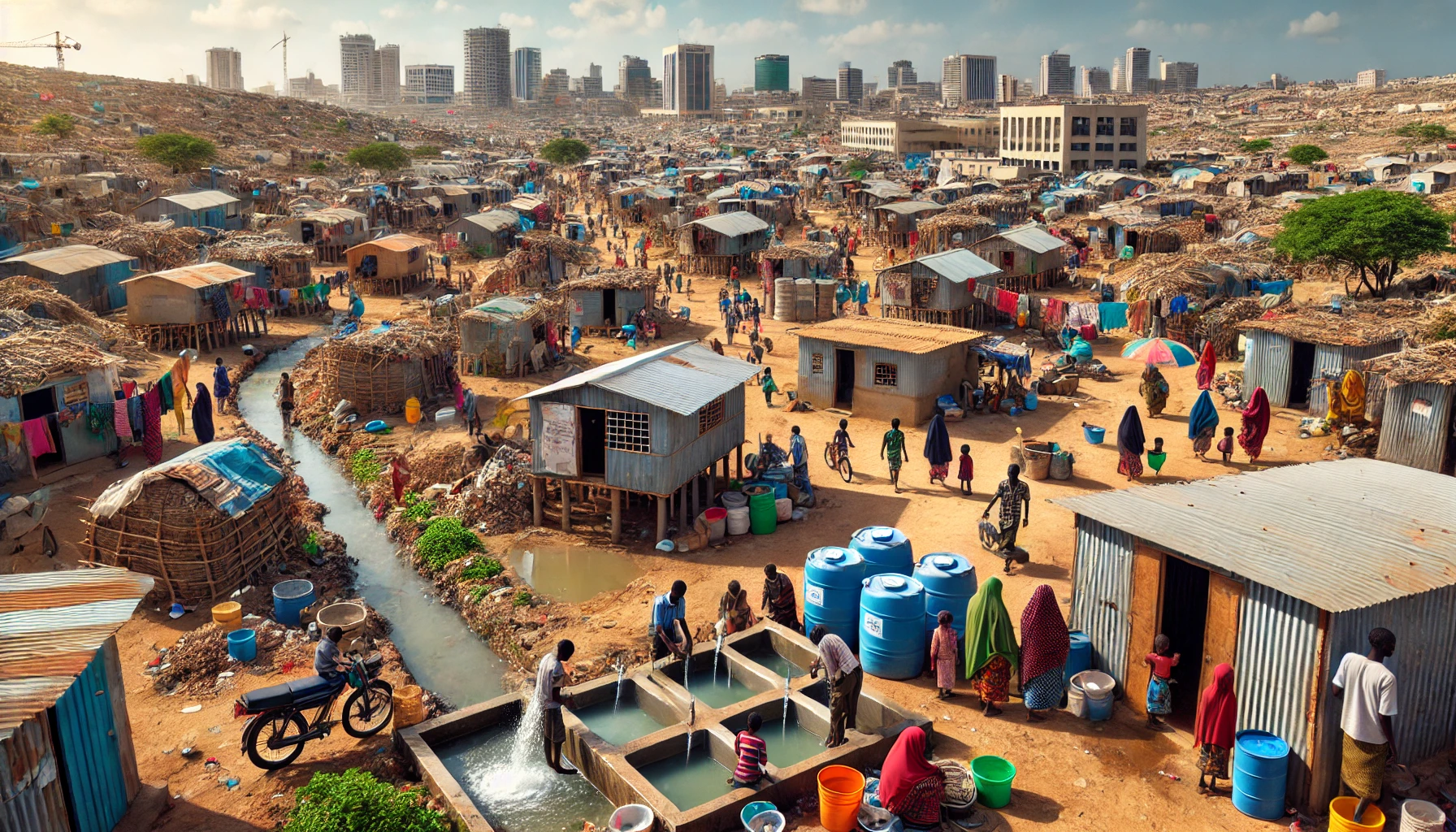The International Rescue Committee (IRC) has issued a grave warning regarding the worsening food crisis in Somalia, where hunger is expected to impact 4.4 million people by the end of December, up from 3.6 million in October. This projected increase is exacerbated by the anticipated La Niña weather pattern, which is expected to drive even harsher conditions.
According to the latest Integrated Food Security Phase Classification (IPC) report, La Niña and recent erratic rainfall patterns from May to June 2024 have severely reduced crop yields. These factors, combined with ongoing conflict and instability, have led to higher displacement rates, disrupted agricultural productivity, and limited market access.
Rising Hunger and Health Risks
The IPC, a global food security assessment mechanism, highlights Somalia’s escalating crisis, with malnutrition rates expected to rise by 21% from the previous year. This increase will put an estimated 1.6 million children under five at risk, driven by reduced humanitarian funding and severe gaps in resources for basic necessities. At present, Somalia’s humanitarian response plan is only 37% funded, a shortfall that has resulted in limited access to food, clean water, and healthcare.
The humanitarian impacts of this crisis are extensive, with a surge in disease prevalence and further displacement predicted. Rising malnutrition among children and the elderly, coupled with constrained water access, compounds health and survival risks for families. Vulnerable groups are particularly impacted, with inadequate funding preventing rapid and essential responses to the worsening conditions.
IRC’s Expanded Response and Preventative Measures
In response to the urgent needs of those at risk, the IRC is expanding its intervention in Somalia, focusing on high-risk areas such as Baidoa and Galkacyo. With support from the German Federal Foreign Office (GFFO), the IRC plans to distribute critical hygiene kits—including soap, water filters, and sanitary supplies—to 600 households, directly aiding approximately 3,600 individuals. In addition, IRC will run community-based hygiene campaigns on safe handwashing, excreta disposal, and water management to prevent disease outbreaks.
The IRC also aims to address the immediate needs of 18,000 people through cash assistance for an additional 3,000 households. Cash transfers enable families to purchase food and other essentials locally, supporting both household resilience and local economies. This preemptive approach, IRC underscores, is essential in tackling the impending drought before it spirals into a full-blown humanitarian disaster.
Longstanding Commitment to Somalia
Having worked in Somalia since 1981, the IRC has a longstanding commitment to the nation, even as it faces considerable challenges due to civil unrest. Since 2007, IRC has provided continuous support in Banadir, Puntland, South-West, Jubaland, and Hirshabelle, focusing on healthcare, cash assistance, water source rehabilitation, and mobile health services to reach isolated communities. IRC Somalia Country Director Richard Crothers emphasizes the urgency, stating, “The combined impact of climate shocks and rising malnutrition rates among children demands immediate action. We cannot afford to wait.”
Looking Ahead
The IRC’s strategic focus in Somalia now includes scaling up climate-adaptive interventions and strengthening food and water security infrastructure. In the face of a mounting humanitarian crisis, the IRC calls for international donors to increase funding to prevent the crisis from escalating to famine levels, reinforcing the agency's commitment to safeguarding Somali communities amidst climate and conflict-related adversities.











